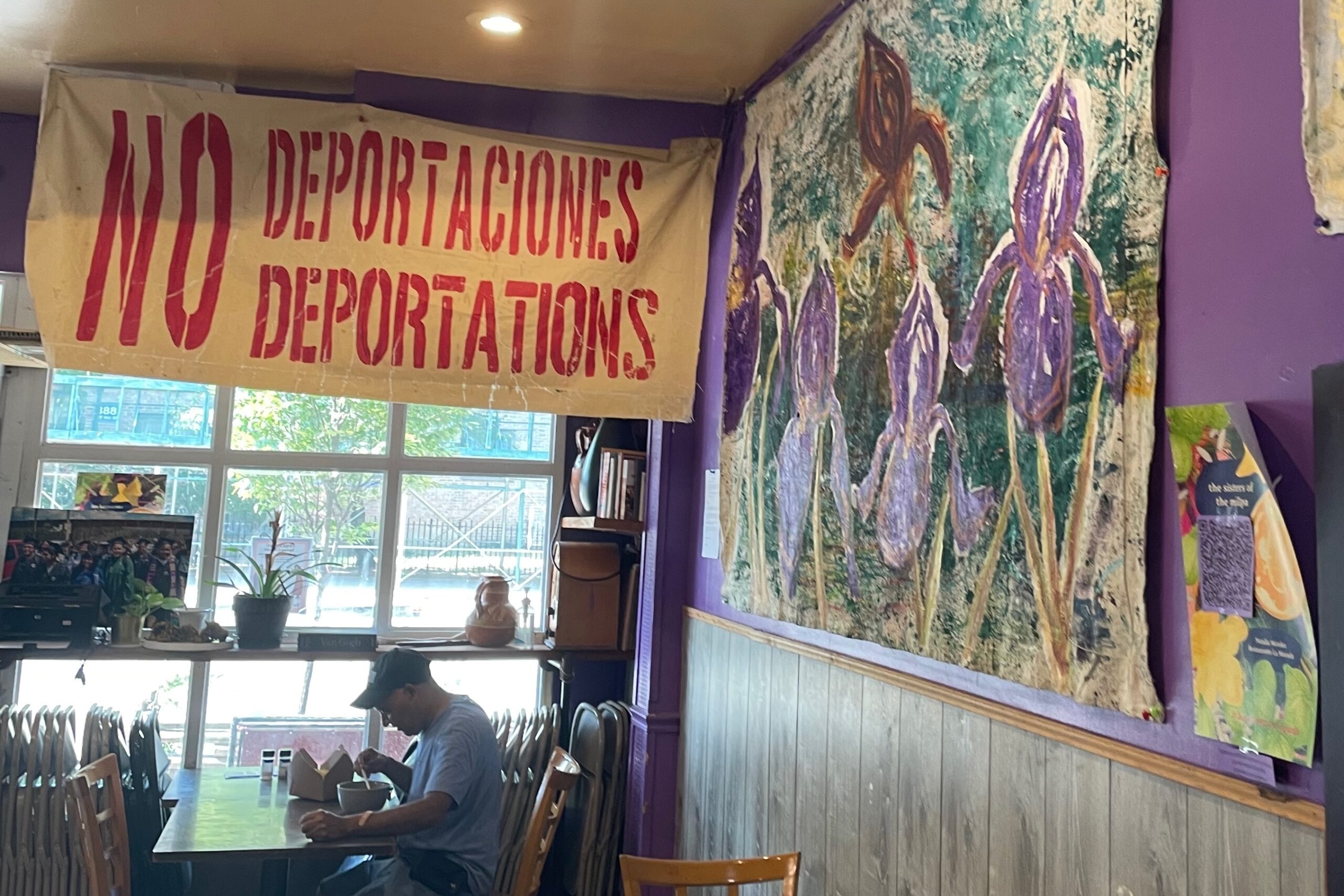Immigrant services are urging Dreamers to continue to renew their Deferred Action for Childhood Arrivals (DACA) applications, amid fears prompted by a federal judge ruling last month that declared the DACA program “unlawful.”
DACA has allowed immigrant children who crossed into the United States before 2021, known as Dreamers, to work without fear of deportation. But since a federal judge in Texas ruled against it in September, that fear has risen again.
“This is likely going to the Supreme Court, which is not a friendly environment, and no one should expect the Supreme Court to protect them,” said Joshua Goldfein, staff attorney at Legal Aid Society, which works with immigrants’ cases.
The ruling does not affect current DACA holders at the moment, unless holders fail to renew their status when it expires every two years. It also opens up a wider topic on immigration reform at a time when New York has hit the 110,000 undocumented immigrant mark.
Mercy Center, a nonprofit that offers free legal immigration services in Mott Haven, processed 45 DACA applications in the 2022 fiscal year. But at least six people missed the renewal deadline, said Director of Immigrant Services Julia Ponce Vega.
“Anyone that has DACA can continue to renew and should do so the earliest that they are eligible to submit the renewal,” she said, “because we don’t know what is going to happen from here in 2024.”
Those who do not renew their DACA application in time lose their work authorization status indefinitely.
Marco Saavedra, 33, a long-time immigrant rights activist who self-deported to Mexico in 2013 with nine other Dreamers in a high profile act of solidarity with immigrants whose families were separated at the border, opined that DACA is only a temporary solution to deportation.
“Even its name, DACA, means Deferred Action for Childhood Arrivals, so what is the deferred action from? It’s deferred action from deportation,” he said. “You’re not getting any legal status, you’re just the last in line for deportation.”
Each DACA renewal application costs $495 and protects recipients for two years at a time, but does not offer a pathway to citizenship.
DACA was passed under the administration of Barack Obama in 2012, despite opposition from a raft of Congressional Republicans. More than 578,000 children under 16 who were brought into the U.S. unlawfully before June 15, 2007 were able to study and work in the United States without threat of deportation.
They were also allowed to apply for advance parole to visit their country of origin, which in some cases meant visiting a dying grandmother for the first time, said Ponce-Vega.
But the policy has been caught in a fault line between the Republican and Democratic Congressional sides, and in 2021 District Court Judge Hanen ruled DACA unlawful, effectively barring the Department of Homeland Security from processing any new DACA applications.
President Joe Biden reinstated the policy that same year, but new applications have since been on hold.
In some ways, DACA is seen as a band-aid solution for wider immigration reforms in the country. The DREAM Act, a broader immigration reform bill that would have allowed certain immigrants who came to the U.S. as children to be eligible for residency, did not pass. But DACA did.
“They were looking at bills that wouldn’t be fought as much as comprehensive immigration reforms,” said Ariadna Phillips, the 42-year-old founder of South Bronx Mutual Aid.
While DACA’s fate continues to hang in the balance, alarm has been raised over the safety of working conditions for all immigrants, with reports of child labor law violations, wage-theft, and lack of worker protection. Undocumented workers are less likely to report workplace mistreatment because they fear they will be deported if they speak up.
“Just because people don’t have legal status, doesn’t mean they don’t have rights,” said Ponce-Vega when asked about wage theft.
The Department of Homeland Security (DHS) announced a policy earlier this year that encourages undocumented immigrants to report unsafe working conditions and ensures they will not be deported for doing so.
“The safest route would be if people are employed,” said Goldfein. After receiving DACA, 69% of respondents moved to a job with better pay and 56% moved to a job with better working conditions, according to a study published by the Center of American Progress.
Overall, more than 77% of undocumented immigrants in New York City were in the workforce in 2017, according to a New York City Opportunity study. That compared to 65% of the city’s U.S.-born population.
New York “is an immigrant city,” said Phillips. “Our country depends on this labor,” she said and, “our economy would not survive without them.”

